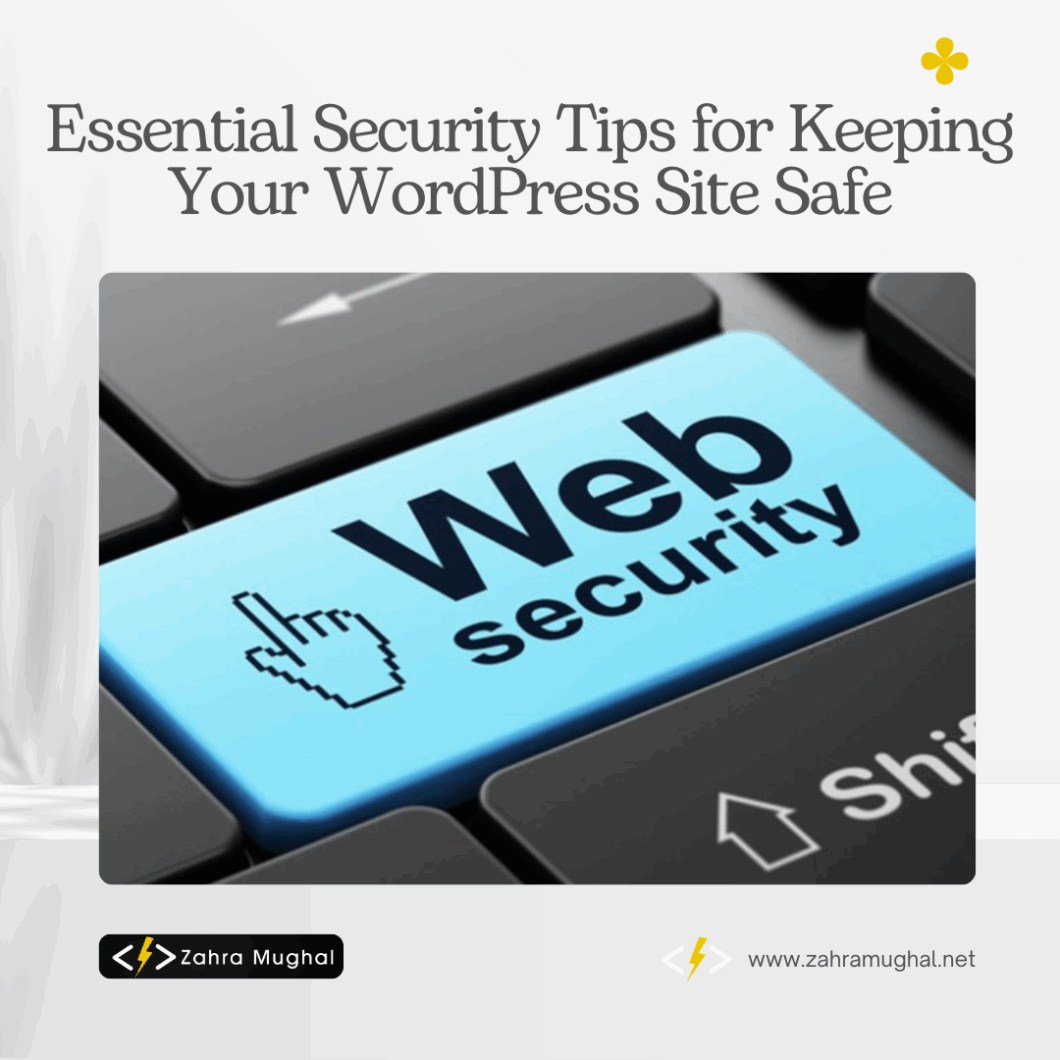If you own a WordPress website, keeping it secure should be at the top of your priority list. WordPress powers more than 40% of all websites on the internet, which makes it a favorite target for hackers. The good news is that with the right steps, you can greatly reduce the risk of your site being compromised.
In this post, I’ll share essential WordPress security tips that I also use for my clients’ websites to keep them safe, fast, and reliable.
1. Keep WordPress, Themes, and Plugins Updated
One of the most common reasons WordPress sites get hacked is outdated software. Hackers often exploit vulnerabilities in old versions of WordPress, plugins, or themes.
Make sure to:
- Regularly update WordPress core.
- Update plugins and themes as soon as new versions are released.
- Remove any unused plugins or themes to reduce risks.
2. Use Strong, Unique Passwords
Weak passwords are like leaving your front door unlocked. Always use strong, unique passwords for your WordPress admin, hosting, and database.
Tip: A password manager (like LastPass or Bitwarden) can generate and store strong passwords for you.
3. Limit Login Attempts
Hackers often try to guess your login details by repeatedly attempting different passwords (brute force attacks). You can stop this by limiting login attempts.
Recommended plugin: Limit Login Attempts Reloaded or Wordfence Security.
4. Enable Two-Factor Authentication (2FA)
Even if someone gets hold of your password, two-factor authentication adds an extra layer of security. With 2FA, you’ll need a code from your phone or email to log in.
Plugins like Google Authenticator or WP 2FA make it easy to set up.
5. Secure Your WordPress Admin Area
Your wp-admin is the most targeted part of your site. Protect it by:
- Changing the default login URL (e.g., from
/wp-adminto something unique). - Using SSL (https) for encrypted connections.
- Allowing only trusted IP addresses if possible.
6. Install a Reliable Security Plugin
A good security plugin acts as your website’s bodyguard. It can block suspicious traffic, scan for malware, and alert you of threats.
Popular choices:
- Wordfence Security
- Sucuri Security
- iThemes Security
7. Regularly Back Up Your Website
Even with the best security, things can go wrong. That’s why backups are essential. With a recent backup, you can quickly restore your site if it ever gets hacked.
Use plugins like UpdraftPlus or BackupBuddy and store backups offsite (Google Drive, Dropbox, or cloud storage).
8. Secure Your Hosting Environment
Not all hosting is equal when it comes to security. A reliable hosting provider offers:
- Firewalls and malware scanning
- Automatic backups
- Free SSL certificates
- Support for the latest PHP version
If you’re serious about security, consider managed WordPress hosting.
9. Monitor Your Website for Suspicious Activity
Keep an eye on your website for anything unusual, such as unknown user accounts or strange changes in files. Security plugins can help with this by sending alerts.
10. Work With a WordPress Professional
Sometimes, keeping up with all the security measures can be overwhelming. That’s where a professional WordPress developer (like me 😊) comes in. I help clients set up security best practices, monitor sites, and fix issues before they turn into problems.
Final Thoughts
Website security isn’t something to take lightly. A hacked site can mean lost revenue, damaged reputation, and even stolen customer data. By following these essential WordPress security tips, you’ll make your site much harder to break into.
If you’d like help securing your WordPress site or want me to review your current setup, feel free to contact me — I’d be happy to make sure your site is safe and protected.

